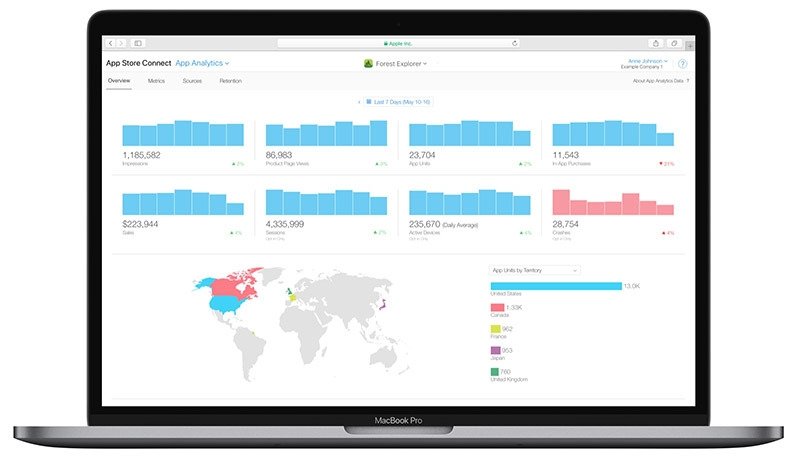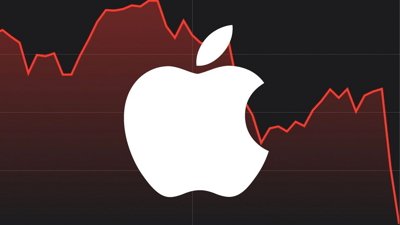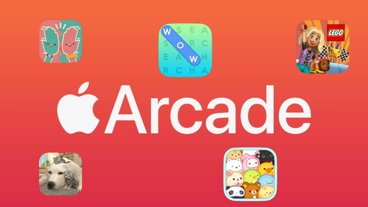New estimates suggest developers are losing interest in releasing new apps on the Mac App Store, with new releases per month down to below 300 titles in June and July.
According to metrics gathered by AppFigures, the average number of new Mac App Store releases hovered at 343 apps per month so far in 2021. That compares to an average of 392 apps per month across 2020.
AppFigures forecasts releases to drop to the low 200s in August.
It should be noted that Apple does not provide exact App Store metrics for either iOS or macOS, meaning analysis of the online marketplace relies on estimates. That said, the iOS version of the App Store is known to be much more popular with developers, with Apple last year saying it receives more than 100,000 apps or app updates for review per week.
The publication does not speculate on the reason behind the reportedly lower Mac App Store submission rate, though it could be chalked up to Mac's relatively low segment penetration. According to the latest estimates from IDC, Apple shipped 6.2 million Macs in the second quarter of 2021 to take a 7.4% share of a growing PC market.
Also of note, Apple allows users to download and install Mac apps from other platforms, including the web. The company's mobile operating system is, at least for now, a virtually closed environment.
The AppFigures estimates were spotted by 9to5Mac on Tuesday.
The situation could change going forward. Apple is well on its way to transitioning Mac to Apple Silicon, a shift that could bode well for the Mac App Store. The move to ARM-based M-series processors on Mac means developers can — with a little help from Xcode — simultaneously code for both Mac and iOS with relative ease. So far, however, only a few iOS developers have brought their wares to macOS.
Apple's Mac App Store launched 10 years ago in January 2011, about two and a half years after its iOS counterpart.
 AppleInsider Staff
AppleInsider Staff

-m.jpg)






 Amber Neely
Amber Neely
 Marko Zivkovic and Mike Wuerthele
Marko Zivkovic and Mike Wuerthele

 Andrew Orr
Andrew Orr
 Malcolm Owen
Malcolm Owen


 Wesley Hilliard
Wesley Hilliard









20 Comments
Not sure that diminishing App Store submissions directly correlates to diminishing Mac development. Given a choice between buying from the App Store and going direct to the developers’ stores, I nearly always choose the later. While there’s a certain convenience to the App Store, I also know that many of the developers I buy from will release updates with discounted upgrades, something that’s more difficult to offer when buying through the App Store. In fact, I honestly can’t remember the last time I purchased software without going direct to the publisher.
Maybe my buying habits are unique? I suspect many others feel the same, which means there may not be a lot of incentive for developers to publish through the App Store, especially considering some of the limitations Apple imposes on apps distributed that way (notwithstanding the exception in that iCloud-enabled apps must be distributed that way).
Maybe Apple itself could lead the way by showing more integration. I, for one, run quite often and would like a simple way to view my activities, Health info and the like on the bigger screen of a Mac.
Also, the change in processor, with only 1 model of new CPU available makes it a bad time to develop for Mac. I suspect, once the transition is complete, there will be more interest in developing for the Mac. Of course, the apps one needs on a Mac are less and more specific to the platform than the ones available for iOS devices. More often than not, the Apps for iOS are some sort of version of the website. Think banking. On iOS you have apps for most major banks, whereas on the Mac you simply go on the bank's website (correctly or not, from a security point of view, that's what happens).
So yes, I think it is normal in a transition period and, moreover, Mac Apps are much more specialistic, most of the time.
COVID-19 and the M1 could be additional reasons why submissions are down 15%.
Apple should do more to help all of us Mac users to be allowed to work on our workplaces on Macs too. As it is now in too many places it´s either a no Mac policy or you have to fight really hard to be able to use one on your workplace. Some exceptions of places prefer you to work on a Mac or let you choose to. I guess developing for Mac would be more relevant if Macs were more common in workplaces.